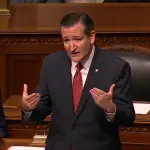In the aftermath of President Joe Biden’s recent signing of the Inflation Reduction Act, conservatives are all abuzz with concerns about the potential repercussions. The act has been celebrated by the president and his allies as a significant victory, but within its provisions lies a troubling caveat that could spell trouble for the pharmaceutical industry and small businesses alike.
The most contentious element of the act is the government’s newfound authority to dictate drug prices for Medicare recipients. While proponents rave about the act’s ability to “negotiate” drug prices, the reality is far less rosy. The government actually has the power to set these prices, leaving drug companies with little choice but to accept whatever the government deems fit or face exorbitant excise taxes.
Now, to add insult to injury, the Biden administration is taking aim at drug patent licenses, invoking a law passed in 1980, the Bayh-Dole Act, to support their actions. Ostensibly, this law was intended to incentivize collaboration between the public and private sectors in research and development, leading to a surge in startups, job creation, and economic growth. However, the administration’s interpretation of the act is a far cry from its original purpose.
Under the guise of addressing exorbitant drug prices, the administration is seeking to wield the Bayh-Dole Act as a means to artificially deflate drug prices, a move that goes against the spirit of the law and could have far-reaching consequences. By upending the traditional application of the law, the administration is setting a troubling precedent by using price as the determining factor for a drug’s accessibility to the public.
To further justify their actions, the administration has leveled accusations against “Big Pharma,” portraying their efforts as a valiant stand against pharmaceutical giants. However, this narrative falls short under scrutiny. The majority of pharmaceutical innovations and developments arise from the efforts of small businesses and startups, not industry giants. In fact, the large pharmaceutical companies at the center of the administration’s ire are not the culprits in this scenario, as their drugs are not typically developed with federal funding.
Furthermore, the potential repercussions of these actions extend beyond the pharmaceutical industry, casting a shadow of uncertainty over all sectors receiving federal funding. The broad reach of the Bayh-Dole Act means that any breakthrough in various fields, from agriculture to climate change, could be subject to government intervention based on price considerations, a prospect that has some experts sounding the alarm.
The administration’s pursuit of this unorthodox interpretation of the law has drawn criticism from the very architects of the Bayh-Dole Act, the late Sens. Birch Bayh and Bob Dole. In a resurfaced statement, the two authors explicitly stated that the act was never intended to empower the government to dictate prices or interfere with a company’s commercialization of its products resulting from government-funded research.
As the administration seeks to push forward with its controversial plan, conservatives are raising the alarm about the potential consequences of such unprecedented government intervention. With the looming specter of drug price regulations and implications for small businesses, this is a battle that is far from over. The implications of the Inflation Reduction Act and its untraditional application have prompted concerns about government overreach and its impact on innovation and economic vitality. Only time will tell what lies ahead in this unfolding saga.
In the backdrop of these developments, Republicans find themselves grappling with a myriad of challenges, from impeachment votes to logistical and fundraising hurdles. Yet, they cannot afford to overlook the gravity of the Biden administration’s actions. As the administration endeavors to bend the rules and reinvent established laws to fit its agenda, it falls to conservatives to remain vigilant and articulate a compelling counterargument in defense of free enterprise and the preservation of the Bayh-Dole Act’s original intent.




